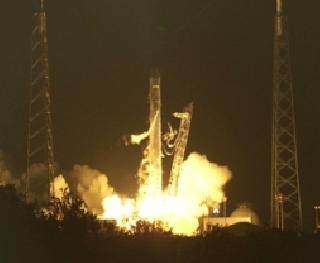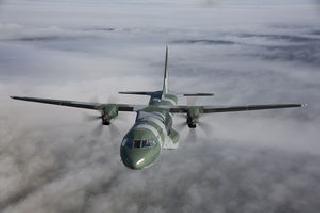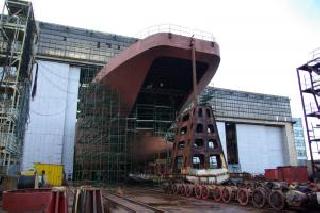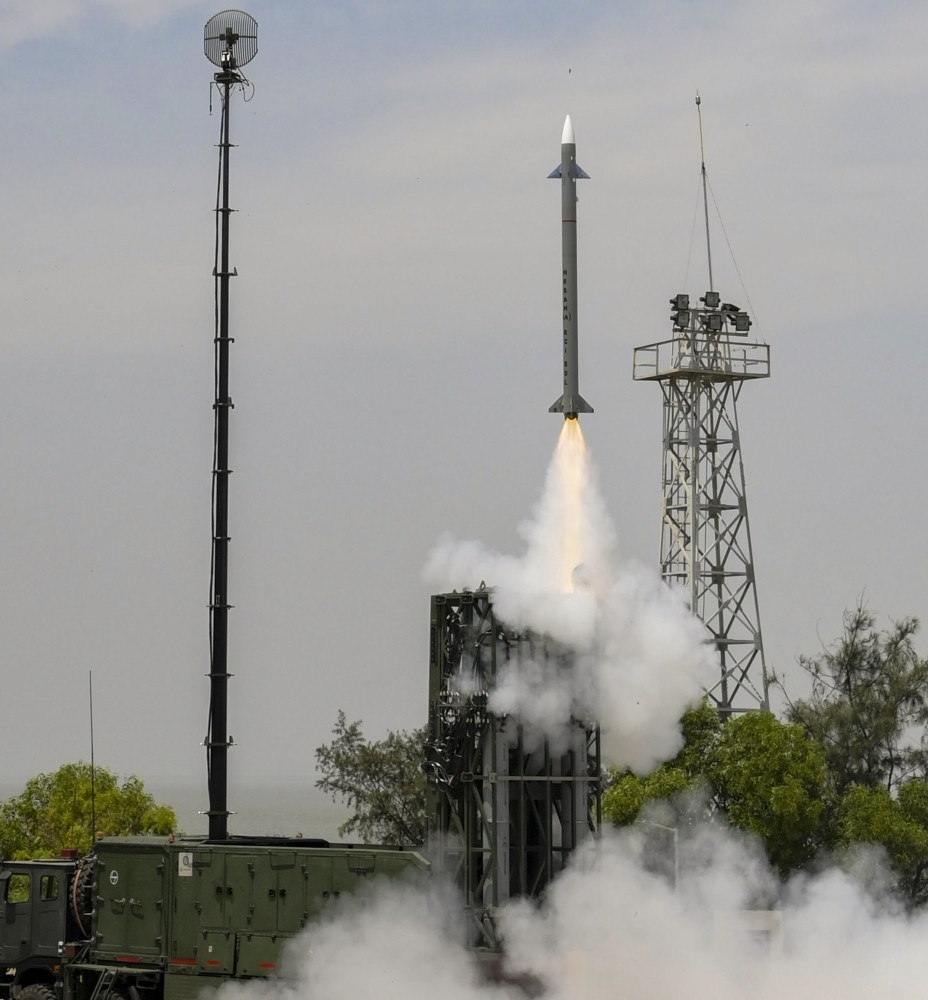
The Falcon 9 and Dragon spacecraft lift off from Cape Canaveral, Florida on Tuesday morning. A NASA TV photo
CAPE CANAVERAL (BNS): In a historic launch, a US-based private space firm on Tuesday successfully orbited an unmanned cargo craft on a re-supply mission to the International Space Station (ISS).
The launch of SpaceX-designed Dragon space capsule took place from the Cape Canaveral Air Force station in Florida at 03:44 EDT (07:44 GMT) by the company's Falcon 9 rocket.
"The SpaceX Dragon capsule is safely in orbit with its power-producing solar arrays deployed following a successful launch aboard the company's Falcon 9 rocket," NASA said.
A previous attempt to launch the spacecraft on May 19 was aborted in the last second as the rocket could not lift off due to a technical glitch.
Tuesday's launch was the fifth attempt to put the spacecraft into orbit. The Dragon was originally scheduled to fly to the ISS on February 7 this year.
During its journey to the space station, the bullet-shaped Dragon capsule will conduct a series of check-out procedures that will test and prove its systems ahead of its rendezvous with the orbital outpost, scheduled on Friday.
A detailed series of navigation and other systems tests will be performed in space before the capsule is allowed to move close enough to the station for astronauts to grab it with the robot arm and connect it to the Earth-facing port of the Harmony module, NASA said.
The tests include a careful approach to the station that calls for the spacecraft to pause several times. The space station crew also will show that they can communicate directly with the uncrewed Dragon capsule.
If all the testing goes well, they will go ahead with the rendezvous and berthing, the space agency said.
Dragon will remain connected to the ISS for about three weeks during which the station crew will unload the craft and then re-load it with used scientific equipment for ferrying back to Earth.
The spaceship will then de-orbit, return to Earth and splash down in the Pacific Ocean.
If successful, the mission will pave way for regular operational commercial cargo resupply missions to the ISS by Dragon. Unlike any other cargo carrier, the Dragon can also bring materials back to Earth, a boon for scientists whose research is taking place on the orbiting laboratory.
Once operational, the Dragon freighter is expected to ferry six tons of food, water, air and other equipment to the ISS.
In December 2010, Dragon made world's first private trip to orbit Earth and back aboard the Falcon 9 rocket. The mission established SpaceX as the first private company to launch and recover a spacecraft from orbit.
The Falcon 9 and Dragon systems have been developed with private-public partnership under NASA's Commercial Orbital Transportation Services (COTS) programme. After retiring its space shuttle fleet, the US space agency is looking to private companies to handle space station supply runs and astronaut rides.
While Russia, Japan and Europe have been sending unmanned supply ships to the ISS, this is the first time that a private firm has launched its own cargo craft to the space laboratory.
The California-based SpaceX along with other private US space firms is vying to fly space freighters as well as astronauts to the ISS in near future.
 Previous Article
Previous Article Next Article
Next Article













The Indian Air Force, in its flight trials evaluation report submitted before the Defence Ministry l..
view articleAn insight into the Medium Multi-Role Combat Aircraft competition...
view articleSky enthusiasts can now spot the International Space Station (ISS) commanded by Indian-American astr..
view article